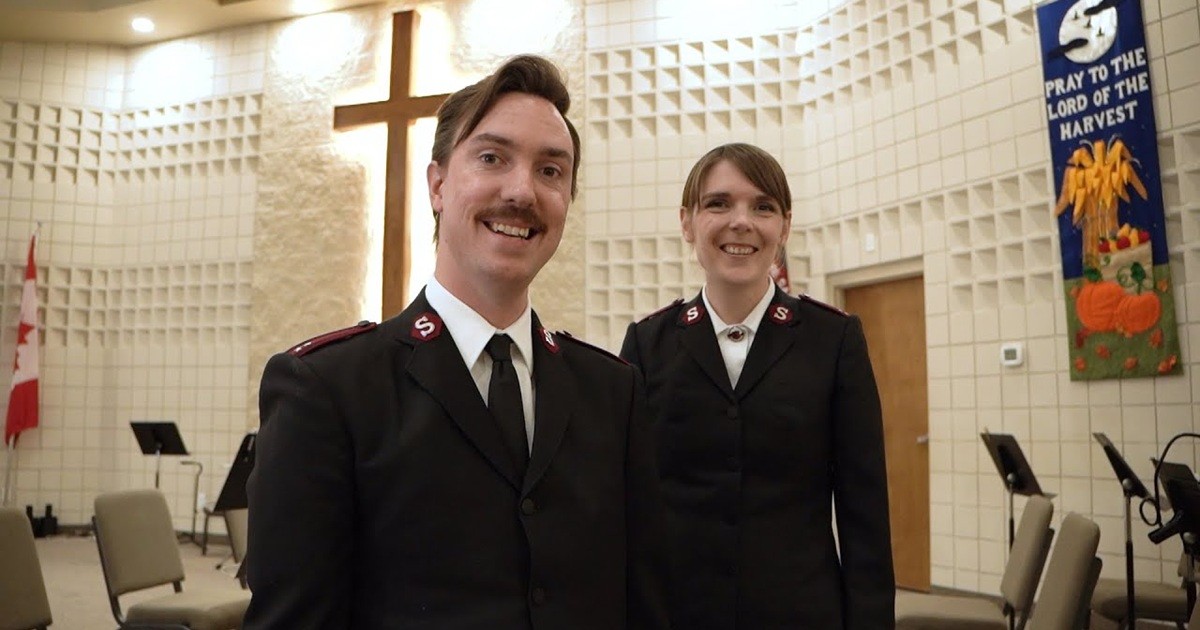According to one definition, a paradox is “a statement or proposition that is seemingly contradictory or opposed to sound reasoning and yet perhaps is true.”
I suggest that The Salvation Army is indeed faced with a paradox. With many voices crying out that we are in a rut and need change—including many Salvationists who want to do away with certain regulations, long-standing practices and, dare I say, even some of our convictions—it seems likely that significant innovation and creativity are required. But I’m perplexed.
While I agree with the voices shouting, “Release the innovators!” and “Down with dogma!” I am also convinced that the answers to our current challenges are found in the timeless practices of:
- Faith in the Creator, Governor and Preserver of all things.
- Attentiveness and obedience to the Holy Spirit.
- Willingness to be used by God however, wherever and whenever we can.
Therein lies the paradox. At a time when the Army is faced with cries for change, the answers to such cries are found in unchanged practices that have been part of our tradition since its inception.
Is it wrong to suggest that the Army is falling behind, not reaching our potential or that our impact is diminishing? No. We are in trouble if we continue with the status quo. Our sanctuaries appear less full, our membership is often disgruntled and many voices accuse the Army of being tragically outdated—or have already erected a figurative tombstone on our grave and declared us dead. We must rethink our efforts.
But does this mean we adopt more lights, smoke and mirrors? Does it mean we throw away our song book in favour of popular worship songs written by others? Does it mean we cancel every Army program, fold every traditional music group, sell our buildings and rent multi-use spaces to be more relevant, appealing and trendy?
Not unless that is exactly what God has asked us to do.
The answers to our challenges are not always found in the ever-present push to be like other churches. Instead, we must root ourselves in faith, obedience and action.
For the traditionalists reading these words, don’t cheer just yet thinking that I am advocating for a return to your idea of the Army’s “golden days.” I’m the first to agree with getting rid of the band, the uniform, the home league or any other element of our faith tradition if they are no longer serving us well. However, I believe that any and every program, ministry effort or activity can be extremely valuable to the Army if they are introducing people to Jesus and making an impact for the kingdom.
In these days, as our territorial leaders call us to be innovative, just and mobilized to share hope, I have no doubt that many are hope-filled at the prospect of change. But before making any vast change, I caution all of us to take a step back and consider the following:
- Are we being faithful?
- Are we being obedient?
- Are we ready and willing to roll up our sleeves and do what needs to be done?
I often wonder what The Salvation Army will look like in 10 years if we are being faithful, obedient innovators today. Here are some of my hopes:
I see The Salvation Army leading discussions and studies about Jesus while sitting on a local bar stool. I see lifelong Salvationists teaching young children and youth how to play the cornet, the bass guitar or even a sousaphone in ways that are fun and exciting and less regimental and restrictive. I see a day when all people, regardless of race, gender, sexual orientation or creed, look at The Salvation Army and automatically think words such as “safe, hope, help and respect.” I see our church buildings serving as community hubs where the doors are always open and we care not about spilling coffee on the carpet or what someone is wearing, but we care greatly about a person’s physical, mental and spiritual health. I see an Army where the Bible is preached and convictions are held firmly, but where a differing opinion is not ignored or rejected with hatred or indignation.
Yes, I want an Army that is willing to change, but an Army that realizes that true change can only take place by getting back to the principles that have never changed.
This is our great paradox.
Captain Sheldon Bungay is the corps officer at St. John’s Temple, N.L.
Photo: Beholder/stock.Adobe.com










Thank you Captain Bungay. I think an inspired zeal for sharing the Lord's light & love with the most marginalized was & still is the vital essence of The Salvation Army. How that's best done is changeable.